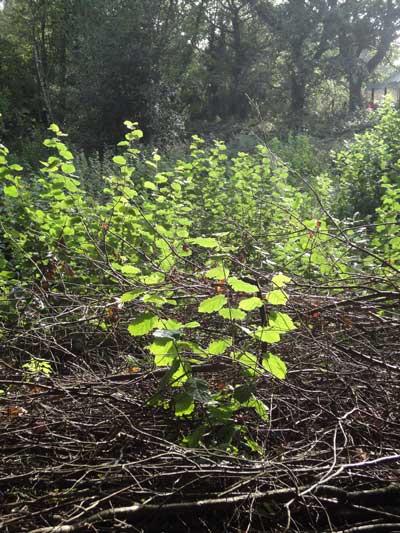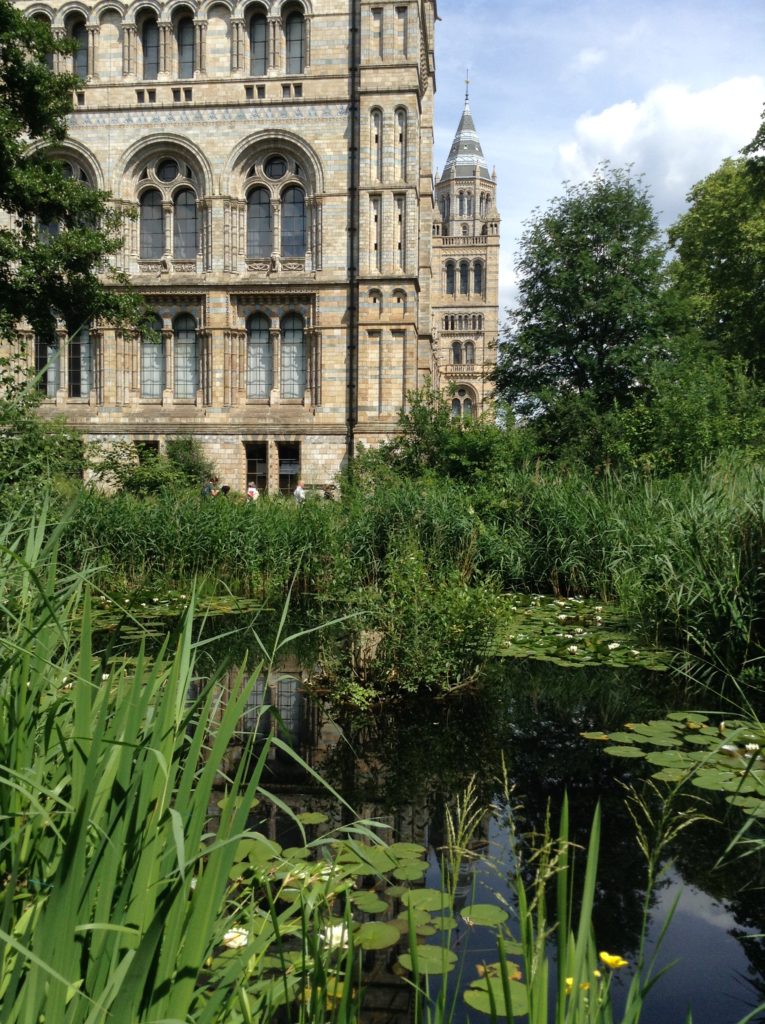Why I changed my mind and signed the ‘Save Our Forests’ petition
- Complaining about the Mainland - 17th August, 2024
- New island designation – is it just greenwash? - 26th April, 2024
- Police and Crime Commissioners – a solution or a problem? - 21st April, 2024
Hooray for the Telegraph, creakily mounting its well-worn soapbox to draw our attention to the forthcoming sell-off of Forestry Commission land.
The controversial decision will pave the way for a huge expansion in the number of Center Parcs-style holiday villages, golf courses, adventure sites and commercial logging operations throughout Britain as land is sold to private companies. Legislation which currently governs the treatment of “ancient forests” such as the Forest of Dean and Sherwood Forest is likely to be changed giving private firms the right to cut down trees. The Telegraph, 23 October
Now this sounds like the sort of thing all right-thinking environmentalists should campaign against. And possibly it will prove to be so. But this Ranger isn’t so sure: there’s not enough detail in the announcements so far to really know if this is a good or a bad thing. But more to the point, some of the reaction to the announcement has been worryingly misguided. If we do ever need to run a public campaign to save our forests – as well we might – we need to do some serious re-educating pretty sharpish. Let me explain why.
Here’s a petition website that somebody sent me a link to today. It’s not atypical of the kind of comments that I have heard from others, and seen elsewhere online. The petition reads:
“Save our forests – don’t sell them off to the highest bidder” * Don’t let private companies chop down our woodland. * Protect trees for the conservation of wildlife and the enjoyment of the public.
Clearly, the principle here is worthy – trees are good. But any assertion more detailed than that is starting to look a bit shaky. Here are some assumptions – and why they are wrong.
1. Cutting down trees is always bad for wildlife. No, it isn’t. In fact, it can be quite the contrary. It is sometimes assumed that anything which involves felling trees is bad for the environment. This is not true: on a small and sustainable scale, managed woodlands can be better for wildlife and particularly the economy than woods which are left unmanaged. In areas where almost all woodlands have been managed in the past, such as most of England, there are significant opportunities to improve wildlife and habitats by managing woodlands and felling trees sustainably. Leaving them unmanaged might actually diminish biodiversity. The issue here is a lot of publicity about ‘saving the rainforest’ – quite right when applied to tropical old-growth forest, but wrong when applied to secondary woodland in England. Also, there is a misunderstanding of the need to save woodlands, as opposed to the need to save individual trees. Sometimes, to keep a woodland, you need to fell trees. Planting new trees is not as important as managing the ones you already have.

2. Private woodland ownership must be a bad thing No, this isn’t right either. Look at the photograph above. It shows not only a recently coppiced hazel woodland (an example of trees being felled beneficially) but also happens to be a picture taken in a private woodland. The woodland is open to the public at no charge, and sympathetically managed, with the help of government grants. The owner? The National Trust. So whilst the Telegraph is technically correct to point out the opportunities for entrepreneurs to build Center Parcs and golf courses, they fail to mention that such developments would of course require the benefit of planning consent, which may not be forthcoming. Whereas there are many thousands of hectares of private woodland which is very well managed as it is, owned by private estates, companies, and big charities such as the National Trust and RSPB. In fact, don’t just take my word for it. The charities themselves say as much. In the original Telegraph article in fact. A spokesman for the National Trust said of the proposed sell-off:
Potentially this is an opportunity. It would depend on which 50 per cent of land they sold off, if it is valuable in terms of nature, conservation and landscape, or of high commercial value in terms of logging. We will take a fairly pragmatic approach and look at each sale on a case by case basis, making sure the land goes to the appropriate organisations for the right sites, making sure the public can continue to enjoy the land.
Mark Avery, conservation director for the RSPB said:
We would be quite relaxed about the idea of some sales, but would be unrelaxed if the wrong bits were up for sale like the New Forest, Forest of Dean or Sherwood Forest, which are incredibly valuable for wildlife and shouldn’t be sold off. We would look very carefully at what was planned. It would be possible to sell 50 per cent if it was done in the right way.
3. Selling off the forests will make lots for the public purse For what it’s worth, it doesn’t seem a foregone that this proposal will save much money. Andrew Heggie on UKTC remarks: “It shows how short memories are: if I remember correctly last time round the FC paid out more in grant aid to some new owners than they got for the land”. Of course that wouldn’t happen if the government seriously cuts grants to private woodland owners – which might be a very much more worrying prospect.
So, in short, it’s not that I don’t think the Forestry Commission does a good job. By and large I think they do. Nor would I particularly want to see the national forest estate privatised as a matter of principle (which is what I suspect at least partly motivates this proposal). No, I think that those concerned about this proposal could be right to worry, but should be directing their concerns more precisely. Don’t worry about felling trees, worry about destroying woodlands. And don’t worry about private ownership, worry about unsustainable management and loss of public access. Maybe I ought to start some sort of petition…
EDIT: Yes, I signed the damned thing. It’s been a couple of months, but the questions I hoped might be resolved have not been addressed. If anything, the government’s plans appear to be worse than first thought. John Vidal in the Guardian reports that junior environment minister Jim Paice MP said in Parliament: “Part of our policy is clearly established: we wish to proceed with very substantial disposal of public forest estate, which could go to the extent of all of it…”
Now don’t get me wrong. I think this petition is poorly, even misleadingly, worded, and if it had been better drafted it would have even wider support. But it’s captured the popular vote as the most obvious means of expressing opposition to the proposals. So I’ll back down. The wording is less important than the sentiment. I’ve signed: I urge you to do the same.




The fact that the Forest and NNR Sell Off proposal has not been consulted on is disgraceful; it clearly breaches parliamentary protocol to run a consultation after the 2nd Reading in the Lords; consultation is meant to inform good law. This is Bad Law.
Woodland is exempt from inheritance tax so the fiscal benefits (if any) are negligible.A Sell Off of land that is publicly owned can only benefit the rich and risks “Private” signs.
The FC only costs 10 million a year and should be clearly and unequivocally defended as outstanding public value. NNR’s are getting forgotton about; where is the nature conservation movement on this or are its leaders with their landholdings grubbily empire building on the back of Stewardship subsidies?
Contact a Lord today; an amendment is before the Lords this month and a last ditch public defence of our woods and nature reserves needs your action and support.
I have also read that there is to be a public consultation early on in 2011.
The problem is that it sets a bad example to developing countries, on the one hand we are trying to stop deforestation in the tropics, but we are selling off woodlands on the other hand, so it is hypocritical.
Indeed, much land may well go conservation organisations such as the RSPB. However I agree there is little doubt that once certain areas of forest are sold off, it will go the highest bidder and lead to habitat fragmentation – so we are in effect doing what we are telling developing countries not to do!
The Government should be increasing the forest currently in ownership, not decreasing!
I can’t help thinking the question people should be asking in relation to selling off the FC is, what has the FC ever done for us?
As far as I’m aware the FC was set up to act as a strategic reserve after WW1. It then went on plant Sitka by grubbing up thousands of hectares on existing hardwood sometimes ancient semi-natural. They don’t seem particularly profitable and the country still imports the most of it timber.
So to sum up; in the past they’ve destroyed ancient woodland, are financially very average, plus provide obsolete timber in an unattractive and sterile environment.
If anyone knows better please set me straight.
Sign the petition that is on the go! Its rate of growth is growing in itself everyday – upto 4,000 a day at the moment. Its getting people onboard, thinking about the issue and wanting to do something about it. Help make this one better. Divided we fall!
I think the people who began the campaign innocently just grabbed words to get things going – alot of people do understand that cutting trees is a good thing sometimes, comments intially were made very quickly to just get started and get something people could support, get the momentum going to show its the selling of this country’s land off to whoever can pay that is not acceptable, and the people want their voice heard against the proposal- its as if the want to sell England and possibly the trees that goes with it. Positive guidance Im sure is always welcome. Just see where people are coming from. We are not all born with the best knowledge. Those people with it need to contribute directly to help.
In one sense, I do understand that in theory, it’s better to be measured in the campaigning. However, ‘wait and see’ can turn into ‘now it’s too late’. So far, I do not get the impression that biodiversity is a very high priority for the government – especially whilst Spelman, with her agri-farming lobbying company, which her husband still directs, is at the helm.
I agree with the comment above: here we are in a mess because of the banks. Instead of selling off Sherwood Forest etc, bring in the Robinhood Tax, and make the greedy bankers put back money into the system they have in one sense, robbed from in the first place. Because being ‘stolen from’ is how I feel – with regard to woodlands, healthcare, and every penny taken from me (without my consent) to bail them out.
Hi Virtual Ranger!
Thank you for a fascinating Blog. But . . .
Do you really believe the Tories are selling off bits of the Forest to save the trees?
Of course you don’t.
Support the cause! Sign the petition.
From a fellow tree-huggerx
On what basis does Paul Beevers make his assertion that England’s forest cover is ‘9% forest cover down from 90%’? Since when did we have 90% forest cover? Not since Neolithic times. Bear in mind also that small patches of woodland less than 2ha are not counted in the figure of 9%.
Forests are what I know. Only some of what you say is true. Cutting individual trees in forest can help to improve other trees, but this mostly for a timber harvest perspective. Unmanaged forests do just fine at managing themselves and produce lots of needed snags and deadwood that provides more versatile wildlife habitat. Keeping the carbon and other nutrients in the forest is particularly helpful and the only way of preserving mycorrhizal bacteria that makes nutrient available to sensitive hair roots that feeds the trees.
Second, the problem with giving over public lands to private entities is loss of control. Private entities, especially for profit corporations prioritize the bottom dollar and stockholders over the natural environment nearly 100% of the time. Eventually you will loose your forests to greed.
Yes, government is not perfect, but with a sensible public there is time to make decisions that will most likely prove to be the right choice.
Speaking of Sherwood forest, Robin Hood comes to mind. Did he not rob from the rich and give to the poor? Is this not giving to the rich and robbing from the poor? Think about it!
Whilst your comments have a balanced approached to private ownership of forestry land, I am worried that unscrew-pew-lous and ignorant developers will impede on our sustainable future and I agree with you the potential loss of public access.
I am not in favour of the government ‘selling off forestry land’.
Take back Britains decifit, from the BANKERS who put us in this situation in the first place, instead of them receveing heafty bonus and excessive retirement pay offs.
Kate
While the points you make are fair the most likely approach by the government is to try and buy people off by offering some land to conservationist groups and selling a great deal to the highest bidder. Those bidders could be/will be the corporations, developers and wealthy individuals we should fear, with the further fragmentation we should fear with the kinds of plans we should fear. Of course there are good examples of owners but there are plenty of bad ones and the history of woodlands and biodiversity in this country is of constant decline. The planning system has done nothing to stop that decline and when developers get hold of the land then bits will be gradually developed and the developers will be called entrepreneirs and walk away with fortunes while those of us who care and work for nothing or near nothing have to battle even harder to try and sort out the mess. From personal experience running a conservation group on public land I know that politicians are ignorant and commonly cynical about bidodiversity. Even barren land can be regenerated and I fear you underestimate how important it is that we restore more woodland where the human touch is extremely light and far more so than the kind of touch that forestry companies would have. England has 9% forest cover down from 90% (with much of that conifers. Several mainland Europe countries have 27 to 44%. I could go on but won’t. I think this Campaign should be seen as a real watershed moment that has to be won and has to be battled for and I hope the young heed this battle and do better for our environment than my generation has done, and of whom I am utterly ashamed. I understand what you are saying but I at least am clear that our unrepresentative bunch of politicians simply do not understand what they are doing.
I agree,of course I am concerned about the potential consequence of a sell off but we need to take a wait and see approach. The petitions I have seen can best be described as alarmist and I think we loose credibility if we jump in before we know all the facts.